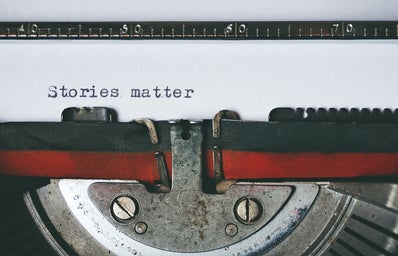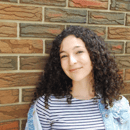It is safe to say that Olaudah Equiano, a slave in 18th century England, would be immensely disappointed with the white community in the 21st century. Equiano was born in South Africa and kidnapped and sold into slavery as a child. He travelled the world through the confinement systemic slave trade, experiencing the Carribeans, Virginian plantations, and the life of a seaman. He wrote about his life as a slave and how he climbed the ranks to dwell in an upper-middle class household in his memoir, The Interesting Narrative of the Life of Olaudah Equiano.
Equiano’s experience doesn’t reflect the experience of a common slave, as he was given the rare opportunity (or I should say, he made the opportunity for himself) to buy his own freedom. Unlike the slave stories we often hear, Equiano was able to trade on the side while working as a deckhand. This allowed him to accumulate enough money to purchase his freedom in only three years. As a result, Equiano integrated himself into British society, even marrying a white woman. This opportunity allowed him to share his story, and despite the harrowing conditions of publication, his experiences were soon known everywhere. It is ironic that a man who was given no rights was suddenly celebrated; a man who wasn’t considered to have a soul because of the colour of his skin was recognized and respected for his identity.
In his memoir, Equiano not only describes the strange and unknown places and cultures unfamiliar to the white British people in the 18th century but also integrates a new, outsider’s perspective of what is familiar to the white community but strange and unknown to him. For example, he details how he thought a clock was a watch on a wall. In addition, he mistook snow for salt. He even believed that paintings would follow him around and report him to his slave owners. As a child, Equiano was uprooted and whisked off to a place with foreign things and people. At this time, he couldn’t even speak English, so he had no one to converse and connect with. He was all alone.
This of course did not stop him from seizing his dreams and freeing himself. An inspiration to slaves everywhere and an impact on those who wore their white privilege on their sleeves, Equiano managed to shine a light on the dark places of slavery. In the late 18th century, many people were unaware of what slaves endured at the hands of their owners. Through his words and experiences, Equiano opened the blind eyes of England. His memoir was the very first influential slave narrative and paved the way for other slave memoirs to come.
This knowledge should only increase the shame we should have in our own community, almost 300 years later. Though Equiano’s was one of many voices that finally abolished slavery in England in 1833 and in America in 1865, it seems as if we have reverted back to our primal ways. And by we, I mean those with white privilege or authority. No, the world is not perfect as perfection does not exist, but basic common decency, civility, and morality do! After learning about Olaudah Equiano’s story and all that he suffered in order to live a life equal to white men and women, I am inexplicably disappointed in the white community as a whole. Didn’t we stand by as slaves were torn apart by merciless white hands only to now subject them to such violence and injustice all over again? We claim to have white privilege, so the least we can do is put our white feet down and end this prejudice. After all, what is white privilege than having the power and ability to impress our opinions on the world? Let’s at least use our voices to stand up for what is right.
Equiano poured out his heart and soul in his memoir, and with it, the blood and tears he shed during his life as a slave. If he were looking down on us now, tears would rain down from the sky. His actions and words should not be in vain. Read his story, recommend his memoir, remember his experiences. At the very least, maybe you will understand that we as white people can never truly understand Equiano’s struggles, as well as the struggles of black people today. But we can stand. Just like Olaudah Equiano.


